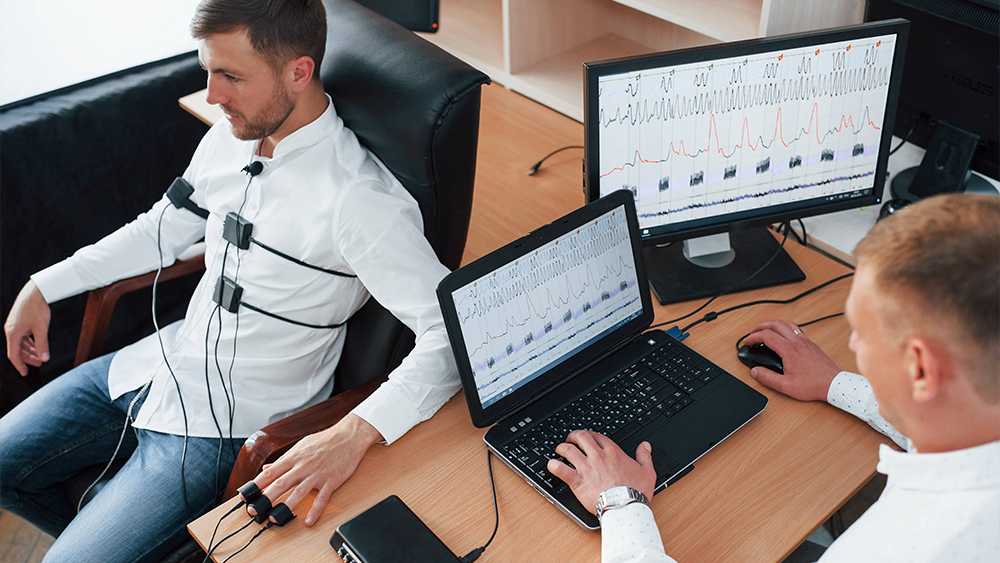How Accurate Are Lie Detector Tests in the UK?

Lie detector tests, also known as polygraph tests, have long been regarded as a tool to determine the truthfulness of an individual’s responses. These tests are often used in various settings, such as personal disputes, legal matters, and even job screenings. In the UK, the accuracy of lie detector tests remains a controversial topic. While many believe in their effectiveness, others argue that the results can be easily influenced by various factors, rendering them unreliable. In this article, we will explore how accurate lie detector tests are in the UK, the factors that can impact their reliability, and whether or not they can truly be trusted as a definitive measure of truth.
What is a Lie Detector Test?
A lie detector test, or polygraph test, is designed to measure physiological responses while an individual answers a series of questions. The polygraph records several key physiological indicators:
The underlying theory behind the lie detector test is that when a person lies, they will experience a physiological reaction to the stress of deception. This is due to the body’s autonomic nervous system reacting to the emotional strain caused by lying. If these physiological responses significantly differ from baseline measurements taken before the test, it is presumed that the person may be deceptive.
However, the results are not always as clear-cut as they may seem. The interpretation of the data depends heavily on the experience of the examiner and the individual being tested.
Factors That Affect the Accuracy of Lie Detector Tests
While lie detector tests have been used for decades, their accuracy remains a subject of debate. There are several factors that can impact the reliability and accuracy of the results, and these factors often vary from case to case.
1. Physiological Differences
One of the primary factors that can affect the accuracy of a polygraph test is individual physiological differences. Not everyone reacts the same way under stress, and a person’s baseline physiological measurements may vary from one individual to another. For example, some people may experience higher heart rates or blood pressure due to anxiety, even when they are telling the truth.
People who suffer from certain medical conditions, such as heart disease or anxiety disorders, may experience abnormal physiological responses that could skew the results of the polygraph. Medications, caffeine, or other substances can also have an impact on the test’s results by influencing the body’s physiological reactions.
Additionally, individuals who are highly trained in controlling their physiological responses (for example, through meditation or biofeedback techniques) may be able to manipulate the polygraph readings, which can lead to inaccurate conclusions.
2. Emotional State of the Individual
The emotional state of the person being tested plays a significant role in the accuracy of the polygraph results. Anxiety, fear, or stress can cause the body to produce physiological responses that mimic the reactions of deception. A person who is nervous about the polygraph test, regardless of whether they are being truthful or not, may experience an increase in heart rate or changes in respiration, which could suggest that they are lying.
This is particularly true in high-stress situations, such as during legal disputes, employment screenings, or personal confrontations, where the individual may feel pressured to pass the test. These emotional responses could be mistaken for signs of deception, even if the person is not lying.
3. The Examiner’s Skill and Objectivity
The skill and experience of the examiner are crucial to the accuracy of the results. A well-trained and experienced polygraph examiner will be able to accurately interpret the data gathered from the test, whereas an inexperienced or unqualified examiner may misinterpret the results. Additionally, if the examiner has any bias or preconceived notions about the individual being tested, it could influence their judgment when interpreting the physiological data.
In the UK, it is essential for polygraph examiners to be certified and follow professional standards to ensure that the results are as accurate as possible. The British Polygraph Association (BPA) is the main body responsible for accrediting examiners in the UK, and certification by this association ensures that the examiner has received proper training and adheres to ethical standards.
4. Countermeasures and Manipulation
Some individuals attempt to manipulate the results of a polygraph test by using countermeasures. These can include techniques to alter physiological responses, such as holding their breath, squeezing their muscles, or trying to relax during the test to reduce stress responses. While these techniques may not guarantee success, they can potentially mask the physiological changes that indicate deception.
The more sophisticated the countermeasures, the more difficult it becomes for the examiner to interpret the results accurately. Therefore, the possibility of manipulation is a significant factor that can reduce the accuracy of the test.
5. The Nature of the Questions
The type of questions asked during the polygraph test can also affect the accuracy of the results. There are typically two types of questions:
- Control questions: These are baseline questions designed to elicit a physiological response, regardless of whether the individual is telling the truth or lying. They are used to compare the physiological responses to relevant questions.
- Relevant questions: These are the questions that pertain directly to the matter at hand, such as “Did you commit the crime?” or “Did you cheat in the relationship?”
If the relevant questions are poorly worded or too ambiguous, it can lead to confusion or unnecessary stress for the person being tested, which can skew the results. Well-constructed and clear questions are essential to ensure that the physiological responses are accurately attributed to the person’s answers.
The Accuracy of Lie Detector Tests: What the Research Says
Research on the accuracy of lie detector tests uk has produced mixed results. Some studies suggest that polygraph tests can be accurate in detecting deception, with accuracy rates ranging from 80% to 90% when administered by experienced examiners. However, other studies have pointed out that the reliability of the test can vary depending on the circumstances, including the emotional state of the person being tested and the methods used to analyze the results.
A study by the National Academy of Sciences in the United States found that polygraphs are not foolproof and can be unreliable under certain conditions. The report highlighted the possibility of false positives (when a truthful person is incorrectly flagged as lying) and false negatives (when a deceptive person is incorrectly deemed truthful). These limitations suggest that polygraph tests should not be considered definitive proof of deception.
In the UK, the results of a polygraph test are not typically admissible as evidence in court. While they can be used as part of an investigation or personal dispute, they are not considered conclusive proof of guilt or innocence. The results may be used to support other evidence but cannot stand alone in making legal decisions.
Conclusion: Are Lie Detector Tests Accurate in the UK?
While lie detector tests can provide some insight into a person’s truthfulness, their accuracy in the UK is far from perfect. The results of a polygraph test can be influenced by numerous factors, including the individual’s physiological differences, emotional state, and the examiner’s skill and objectivity. Additionally, the possibility of countermeasures and the nature of the questions being asked can further complicate the results.
Despite the potential for inaccuracies, polygraph tests can still serve as a useful tool when combined with other forms of evidence. However, they should never be relied upon as the sole method of determining truthfulness, especially in high-stakes situations such as legal proceedings. When considering a lie detector test UK, it is important to work with a certified and experienced examiner and to understand the limitations of the test. Ultimately, lie detector tests are just one piece of the puzzle, and they should be used cautiously and responsibly.





